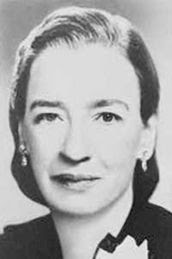A Turing award for Grace Hopper?
 In my blog comments about the 2006 ACM A.M. Turing Award, won by Frances E. Allen, I wrote, “It’s a shame that it’s taken 40 years to recognize the first woman for the most prestigious award in computing.”
In my blog comments about the 2006 ACM A.M. Turing Award, won by Frances E. Allen, I wrote, “It’s a shame that it’s taken 40 years to recognize the first woman for the most prestigious award in computing.”
A reader responded sardonically:
I guess the Lady Admiral who wrote Fortran wasn’t very important… So I won’t bother to even name her. After all, she only worked for the U.S. Government and not a large conglomerate like IBM…
Without detracting from Fran Allen’s justly deserved honor, the reader brings up a valid question. Why wasn’t Adm. Grace Hopper recognized as a Turing Award winner? I’ve asked the ACM, which promises that the Turing Award Committee will have a response to me shortly.
My first thought was that the Turing Award wasn’t given out posthumously, and so there wasn’t time to give her the honor. No, that can’t be it. The A.M. Turing Award was first offered in 1966. Adm. Hopper passed away in January 1992, so, there was plenty of time to give her the Turing Award. In fact, the very first Turing Award went to Alan J. Perlis, who died in February 1990.
It can’t be that the ACM didn’t recognize Adm. Hopper’s contribution. Indeed, since 1971 the ACM has offered the Grace Murray Hopper Award, given out to outstanding young computer professionals. (The first recipient of this award was Donald Knuth, who won the Turing Award three years later.)
I’ll be curious what the Turing Award Committee has to say on this subject.
While we wait, I’ll relate one anecdote about Adm. Hopper, who has long been a personal hero. The expression “computer bug,” or “there’s a bug in the system” dates back to Sept. 1945, when Adm. Hopper “debugged” a Mark II Aiken Relay Calculator by removing a moth stuck between two relay points.
Adm. Hopper’s notebook — with the poor moth taped to the page and the comment, “first actual case of bug being found” — is on display at the U.S. Naval Surface Weapons Center in Dahlgren, Va., where I worked in the early 1980s as a DoD contractor. Discovering that moth, and her notes, created a wonderfully tangible connection to the early days of computer science.

I am fascinated how this story of the bug lives on, despite widespread knowledge that it did not occur as you describe. The term bug meaning an error or glitch existed long before Grace Hopper used it–in fact her use of it was a pun on the existing term; Hopper is not the one who found the bug; and finally the event you describe (corrected for the right participants) occurred in 1947, not 1945. See http://en.wikipedia.org/wiki/Software_bug
None of this detracts from her credentials for the Turing of course, which, I agree, should have been given to her long ago.
Hmm. Whom to trust: the Wikipedia, or the Navy’s archives and Grace Hopper’s log book, which I’ve seen with my own eyes? Tricky!